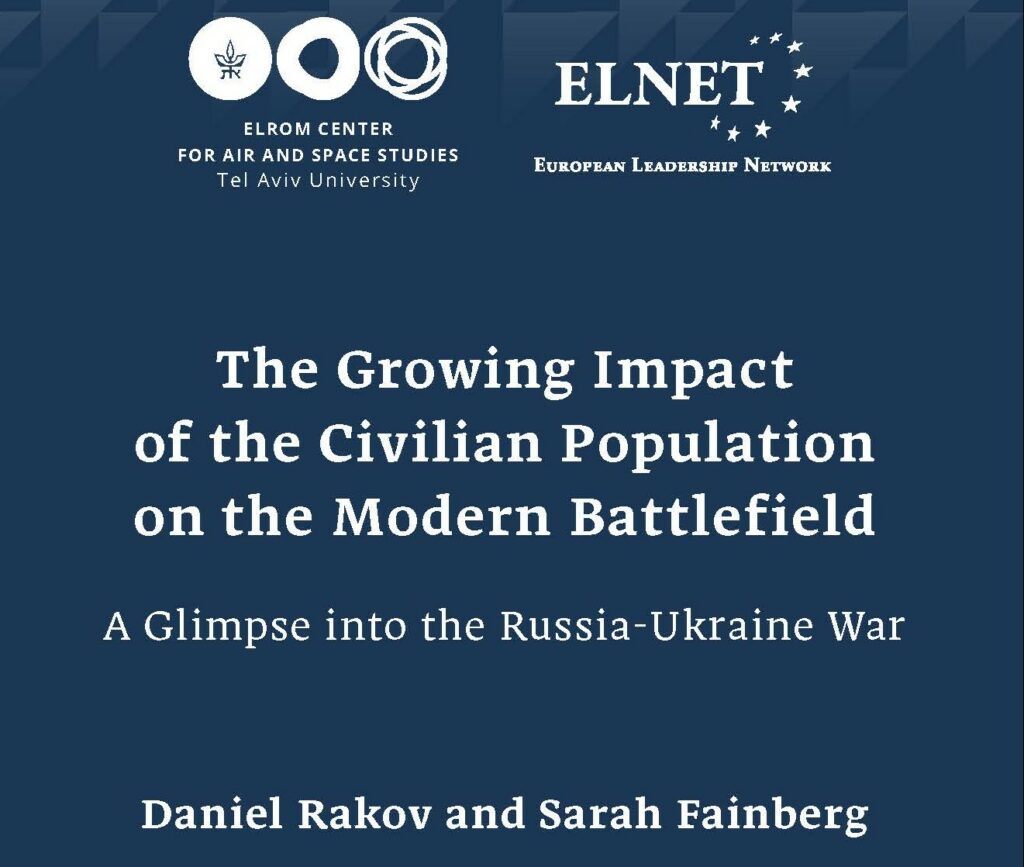ELNET has collaborated with Elrom Center for Air and Space Studies, Tel Aviv University, to translate into English and publish this research,
written by Lt. Colonel (res.) Daniel Rakov and Dr. Sarah Fainberg, and conducted at Elrom. The research deals with the growing role of the civilian population on the modern battlefield.
The Hebrew version was published in February 2023.
This report examines the role of civilians in modern warfare based on the case study
of the first year of the Russian-Ukrainian war (February 2022-February 2023). This
war provides a contemporary and unique example of intense interaction between
an aggressor state (Russia), a defending state (Ukraine), the population caught in
between (Ukrainian), and the international arena.
The study offers a systemic analysis of the interactions between the parties involved in the war in four main dimensions:
1) The Stakeholders' Strategic Objectives
2) Their Different Approaches to Civilians in Armed Conflicts
3) The Leverage Tools at their Disposal
*Military, Political, Economic, and Information Warfare
4) The Strategic and Operational Interaction Between Them
The contribution of this research lies in its holistic approach to understanding
the growing influence of civilians on the modern battlefield.
The study highlights the increasing importance of the “digital front” in modern
warfare as well as the overall empowerment of civilians whose impact on the
dynamics of the war is increasingly felt. As the war in Ukraine has demonstrated,
civilians in modern warfare constitute a sub-system within the broader ecosystem
of the conflict, thereby transcending their traditional roles as passive “obstacles”
for an attacking military force or as an active partisan military force for a defending
state. Through digital platforms and new digital infrastructure, civilians fulfill a wide
variety of roles, including intelligence collection via smartphones, early warning
for activation of air defenses by using air alert phone applications, and grassroots
documentation of war crime evidence. Civilians have weaponized the digital space,
influencing the dynamics of the battlefield and the states’ ability to achieve their
strategic objectives, especially when it involves intensive ground warfare.

